The Variable LifeSample

“Does Your Work Matter Beyond a Paycheck?”
It’s easy to get lost in our work. Time’s an offering, the almighty office desk an altar. Culture praises overtime. Sacrificed relationships are badges of honor. Being a workaholic is socially acceptable, but we forget that’s how we get burnt out, spiraling out of control under pressure. A results-driven culture tempts us to sacrifice a little more time and health. Why do we recognize such little middle ground between lazy entitlement and obsessive workaholism?
Working hard is commendable. However, work is only one piece of the puzzle. Work is designed for significance beyond itself.
Conflict erupts within ourselves and with others when we make work into something it’s not. Labor carries intrinsic value, dignity, and income. It’s not just about individual achievement, wealth, or living comfortably. Without connections, work doesn’t live up to its potential. Work is about purpose and our purpose is connected to people.
King Solomon was considered the wisest man in the world around 1000 BC. As king of one of the most influential nations, he had wealth, military assets, and a thousand wives and mistresses. It seems he should’ve been the happiest man in the world.
Yet, Solomon wasn’t satisfied. The cultural measure of success didn’t work for one of the world’s most successful people. In critique of the conquering and accumulation mindset, the narrator of Ecclesiastes revealed what really matters is much simpler.
What if we’re looking in the wrong places for a fulfilled life? Being satisfied isn’t found by owning more, controlling more people, or instant gratification. Working toward self-satisfaction is shortsighted; we’re made for more.
Life’s more than what we achieve. Our work isn’t everything, but it isn’t nothing.
Work is how we provide for people we love and contribute to the world. Work teaches us to grow and change. It helps us discover parts of who we are, but it’s not all that defines us. The number on our paycheck can never quantify the value of our existence.
We find substance in simpler things, like being a good friend, neighbor, and family member. We find purpose by learning to become who God dreamed us to be, and by doing work that adds to human flourishing. We find the true meaning of work when we realize it’s about striving for something eternally significant and connecting with people, not trying to gain from them.
It’s easy to get lost in our work. Time’s an offering, the almighty office desk an altar. Culture praises overtime. Sacrificed relationships are badges of honor. Being a workaholic is socially acceptable, but we forget that’s how we get burnt out, spiraling out of control under pressure. A results-driven culture tempts us to sacrifice a little more time and health. Why do we recognize such little middle ground between lazy entitlement and obsessive workaholism?
Working hard is commendable. However, work is only one piece of the puzzle. Work is designed for significance beyond itself.
Conflict erupts within ourselves and with others when we make work into something it’s not. Labor carries intrinsic value, dignity, and income. It’s not just about individual achievement, wealth, or living comfortably. Without connections, work doesn’t live up to its potential. Work is about purpose and our purpose is connected to people.
King Solomon was considered the wisest man in the world around 1000 BC. As king of one of the most influential nations, he had wealth, military assets, and a thousand wives and mistresses. It seems he should’ve been the happiest man in the world.
Yet, Solomon wasn’t satisfied. The cultural measure of success didn’t work for one of the world’s most successful people. In critique of the conquering and accumulation mindset, the narrator of Ecclesiastes revealed what really matters is much simpler.
What if we’re looking in the wrong places for a fulfilled life? Being satisfied isn’t found by owning more, controlling more people, or instant gratification. Working toward self-satisfaction is shortsighted; we’re made for more.
Life’s more than what we achieve. Our work isn’t everything, but it isn’t nothing.
Work is how we provide for people we love and contribute to the world. Work teaches us to grow and change. It helps us discover parts of who we are, but it’s not all that defines us. The number on our paycheck can never quantify the value of our existence.
We find substance in simpler things, like being a good friend, neighbor, and family member. We find purpose by learning to become who God dreamed us to be, and by doing work that adds to human flourishing. We find the true meaning of work when we realize it’s about striving for something eternally significant and connecting with people, not trying to gain from them.
Scripture
About this Plan

In a moment, one choice can change everything. Who will my friends be? Which college or career will I pursue? What does God want for me? Where will I find the answers? In this plan, based on the book The Variable Life, John Weirick shares stories and insights to help you through the maze of change, choices, and complexities in modern life, without losing sight of God or yourself.
More
We would like to thank John Weirick for providing this plan. For more information, please visit: thevariablelife.com
Related Plans
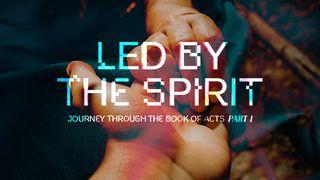
Led by the Spirit: Journey Through the Book of Acts Part 1
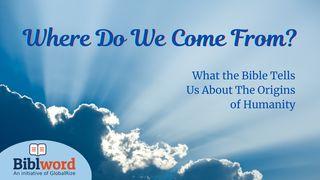
Where Do We Come From?

Hope in the Midst of Chaos: Devotions for Teen Mothers

The Comeback Part 1

Hope for the Holidays
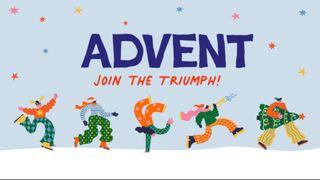
Advent: Join the Triumph

Thriving Through the Holidays: 5 Days of Hope for the Military Wife This Christmas
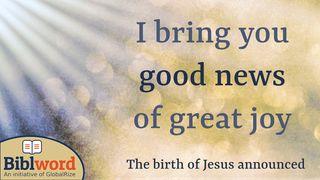
I Bring You Good News of Great Joy
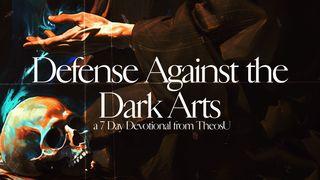
Defense Against the Dark Arts
